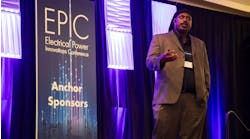Ask the typical small business executive, “How do you market yourself?” and you’re likely to get answers like the following:
- We’re in the Yellow Pages.
- We have someone who does cold-calling for us.
- Our sales manager makes personal visits to existing accounts.
- We use a flier service that lets us offer discounts to selected zip codes.
- We run seasonal sales on specific products, services or bundles.
- Our company logo and phone number are on our trucks.
But these are sales and advertising actions, not marketing actions.
Marketing is really about how you present your business to your target market and how you position your products and services in that market. If you don’t have a target market, you probably can’t do effective marketing. So first, decide to whom will you sell. Then decide what you can offer them. Or based on what you can offer, decide to whom you will offer it.
Can you answer these questions?
- Who should want to hire you?
- What is special about your company?
- What do you do better than anyone else?
- What do you excel in, even if someone else (maybe) does it better?
- Why should someone hire you rather than a competitor?
What is your distinctive competence? You may have more than one, but keep the list short. If you can’t answer that question, neither can your prospective customers. Without that answer, they have no compelling reason to hire your firm.
Granted, you don’t want to get locked into a niche that severely limits the available pool of customers. Or limits your offerings to something almost nobody needs. But you also don’t want to be yet another commodity electrical services firm doing the same thing “everyone else” does and competing on price.
The mentality of “trying to get whatever work we can” means you get less. Focus. If you specialize and are good at what you do, you will get more work and you’ll be able to command a higher price for it.
But what if you really are a generalist with no particular technical competence? Fine, if that’s your reality. But don’t position yourself this way in the market.
You could change that reality. Decide upon a competence, and hire and/or train people who can deliver it (also buy or lease the necessary equipment). You could position your company as specialist, even if it is a generalist, by adding something of value to make you different. Consider these tags, which can go on your advertising materials (note the explanatory comments in parentheses):
- Free sample thermographic analysis of any panel. (valuable free offer)
- Take our troubleshooting basics course, free. Limit 6 seats per customer. (valuable free training offer)
- Our callback rate is one of the lowest in the industry. (trust factor)
- No lost time accidents in more than 20 years. (good for marketing to GCs)
- We can find and fix problems before they find and fix you. (preventing customer crisis)
- Let us clear the fog on your lighting choices. (solving customer choice complexity problem)
- We listen, then advise. Not the other way around. (provide what they actually need)
And you can apply any of these in addition to having the special technical competence that is your distinctive market position. For example, your firm is “the switchgear specialist,” and you offer a free thermographic analysis of any panel the customer chooses.
Come up with a tagline that offers something your target market wants (listen to your target market for ideas). The point is to communicate what you can do to meet the needs your prospective customers have.





